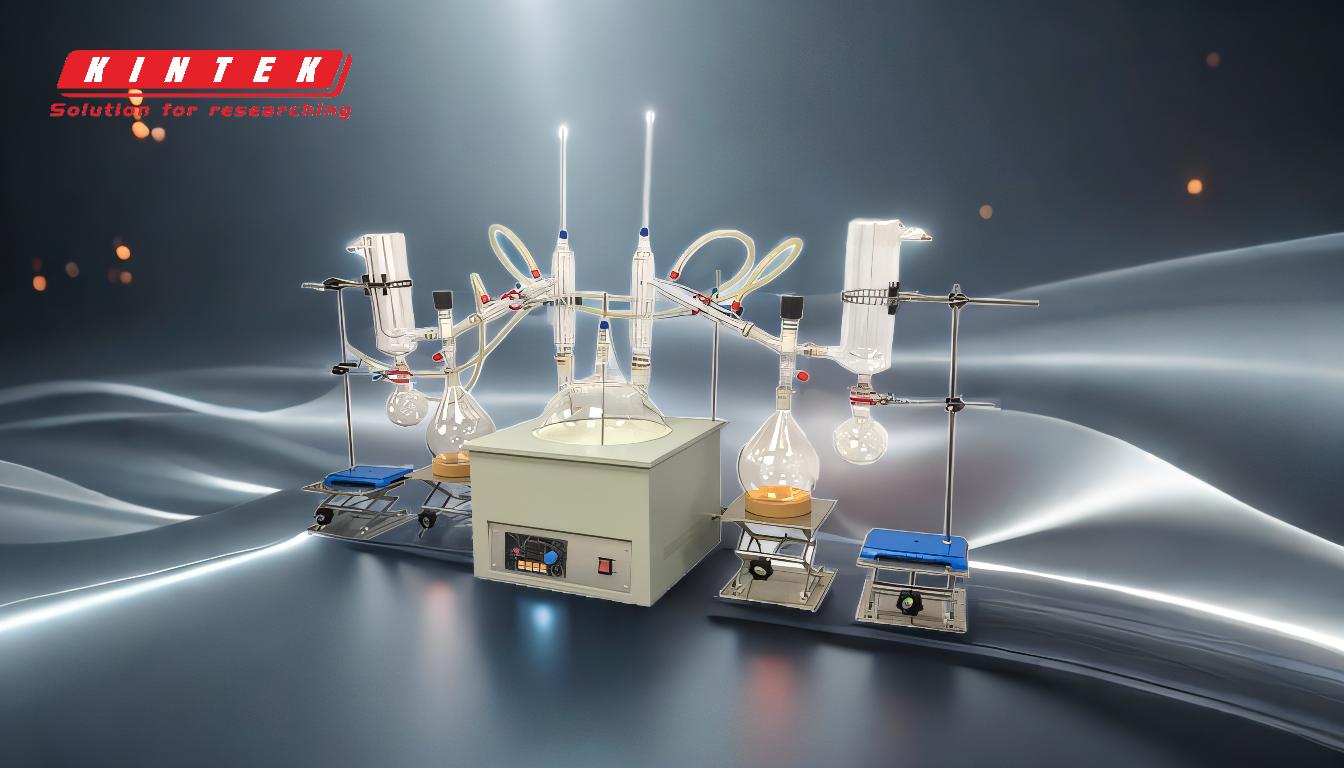Molecular distillation is a highly specialized separation technique that offers numerous advantages, particularly for heat-sensitive and high-boiling-point materials. It operates under high vacuum conditions, which significantly lowers the boiling point of substances, allowing for separation at much lower temperatures compared to conventional distillation. This minimizes thermal degradation, preserves the natural properties of sensitive materials, and ensures high product purity. Additionally, the process is efficient, energy-saving, and eliminates the need for chemical treatments, making it ideal for industries such as pharmaceuticals, food, and cosmetics. Its ability to handle complex mixtures and produce high-quality outputs makes it a valuable tool for both traditional and innovative applications.
Key Points Explained:

-
Low-Temperature Operation:
- Molecular distillation operates under high vacuum conditions, which drastically reduces the boiling point of materials. This allows for the separation of heat-sensitive and high-boiling-point substances at much lower temperatures than traditional distillation methods.
- Advantage: Minimizes thermal degradation and preserves the integrity of sensitive compounds, such as vitamins, polyunsaturated fatty acids, and essential oils.
-
Short Heating Time:
- The process involves very short exposure to heat due to the minimal distance between the heated surface and the condensation surface. This reduces the likelihood of heat damage to sensitive molecules.
- Advantage: Protects thermally sensitive materials, ensuring maximum product quality and minimal decomposition.
-
High Purity and Natural Preservation:
- Molecular distillation eliminates the need for chemical treatments, preserving the natural properties of the materials being processed.
- Advantage: Produces high-purity products without altering their natural composition, making it ideal for industries like pharmaceuticals, food, and cosmetics.
-
Versatility in Applications:
- The technique is used for a wide range of applications, including the purification of oils, enrichment of specific compounds (e.g., γ-linolenic acid in borage oil), recovery of tocopherols, and separation of volatile substances.
- Advantage: Suitable for handling complex mixtures and producing high-quality outputs, making it valuable for both traditional and innovative processes.
-
Energy Efficiency and Economic Viability:
- Despite the higher initial cost of molecular distillation equipment, advancements in vacuum technology have stabilized systems, increased output, and reduced labor costs.
- Advantage: Offers improved product quality, system stability, shorter maintenance times, and low energy consumption, making it economically viable in the long run.
-
Minimal Thermal Stress:
- The process reduces the pressure difference on the material's static liquid surface, allowing volatile components to evaporate without causing significant thermal stress.
- Advantage: Ensures minimal product decomposition and maintains maximum product quality, particularly for heat-sensitive materials.
-
Environmental and Health Benefits:
- By avoiding chemical treatments and reducing thermal degradation, molecular distillation is an environmentally friendly process that also preserves the health benefits of natural products.
- Advantage: Supports sustainable practices and produces healthier, more natural products for consumers.
In summary, molecular distillation is a highly effective and versatile technique that offers significant advantages for the separation and purification of heat-sensitive and high-boiling-point materials. Its ability to operate at low temperatures, preserve natural properties, and produce high-purity outputs makes it a valuable tool across various industries.
Summary Table:
| Key Advantages | Description |
|---|---|
| Low-Temperature Operation | Reduces boiling points, minimizing thermal degradation of sensitive materials. |
| Short Heating Time | Protects thermally sensitive compounds, ensuring maximum product quality. |
| High Purity and Natural Preservation | Eliminates chemical treatments, preserving natural properties. |
| Versatility in Applications | Ideal for pharmaceuticals, food, cosmetics, and more. |
| Energy Efficiency | Low energy consumption and long-term economic viability. |
| Minimal Thermal Stress | Ensures minimal decomposition of heat-sensitive materials. |
| Environmental and Health Benefits | Supports sustainability and produces healthier, natural products. |
Ready to enhance your material separation process? Contact us today to learn more about molecular distillation!









